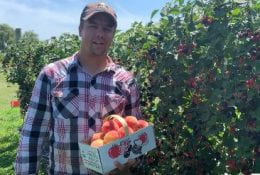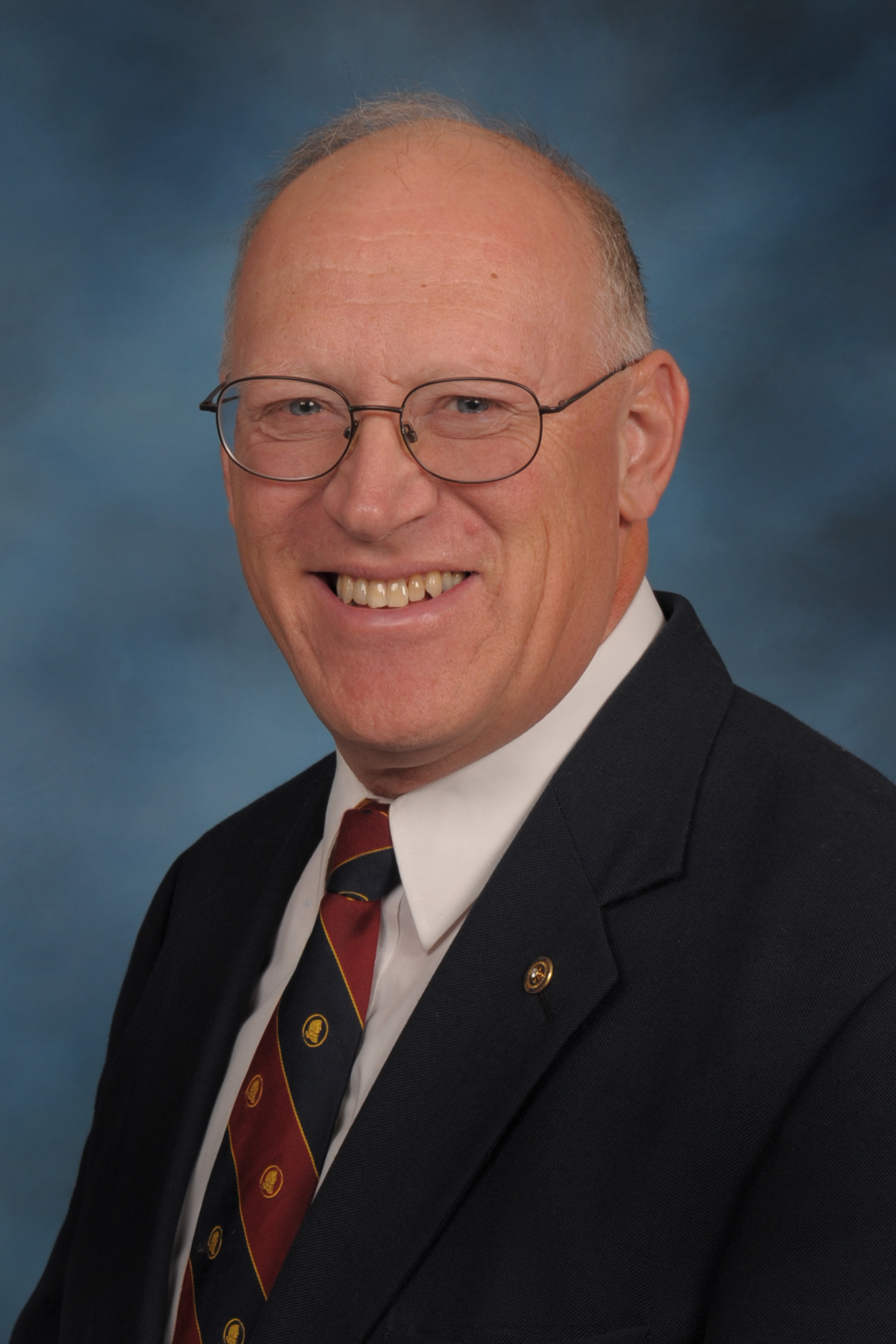By Ron Wilson, director of the Huck Boyd National Institute for Rural Development at Kansas State University.
What grows in the apple orchard? Well, one would think a safe guess would be “apples.” Today we’ll meet a grower who indeed produces lots of apples and other tree fruit, but he is also developing innovative ideas about his production processes.

Gabe Spurgeon is manager of South Baldwin Farms near Baldwin City. A Missourian, he met his wife in honors college while they were attending Pittsburg State. He earned degrees in math and physics and worked for engineering firms in Joplin and Pittsburg before they moved to Baldwin City so as to be close to her family.
As a kid, Gabe worked in peach orchards during the summertime. After graduating from college, he found he didn’t enjoy working inside at a desk.
His father-in-law had purchased a farm south of Baldwin City in 2000 and was haying it but had always been interested in having a commercial orchard. They decided to devote part of the farm to the orchard with Gabe doing the day-to-day management. The first apple trees were planted in 2015, with peach and apple trees and other products following.
Today, South Baldwin Farms has some 36,000 trees. Their farm produces apples, peaches, nectarines and blackberries, with cherry trees coming into production soon. South Baldwin Farms has an 11,000-square-foot facility including a retail storefront, packing facility and 2,400 square feet of cold storage. The farm has a pumpkin patch and a seasonal U-pick operation as well.
Cider is homemade in the fall. “I like it being special,” Gabe said. “We use our own apples so it can be fresher with higher quality.”
This is not your grandfather’s orchard. “The engineer side of my brain is always looking for a better way to do things,” Gabe said. For example, he chose to grow dwarf trees which produce quality apples quicker. They are grown in high density, which saves land and labor. “In 2019, we got 500 bushels per acre on some three-year-old trees,” Gabe said. “We’re quickly becoming the biggest tree-fruit producer in Kansas.”
Gabe continues to innovate. “We went to Australia to learn about high density peaches,” he said.
“We got a Kansas Department of Agriculture specialty crop block grant to do a field trial on using netting over our trees which is supposed to protect from hail, windburn, sunburn and bird damage,” Gabe said. Through another project, they have found that reflective fabric on the ground can help develop the color of the fruit.
Their blackberries are grown on a rotating trellis, which allows easier harvest, more sun where needed, and protection when it is not needed. “Our sun scald used to be five- to 10 percent,” he said. “Now it’s virtually zero.”
K-State Research and Extension entomologist Raymond Cloyd has been helpful. “He’s been fantastic,” Gabe said. South Baldwin Farms is a member of the Kansas Department of Agriculture’s From the Land of Kansas program.
Weather can be a challenge. A freeze on Good Friday of 2020 caused a 90% reduction in the peach crop. That is reminiscent of the Armistice Day freeze in the 1940s, when the temperature fell from 70 degrees to 15 degrees in 12 hours. According to the stories, it sounded like a minefield in the orchards, with sap freezing in the trees and the trees literally exploding.
Current apple varieties include Gala, Pink Lady, Honey Crisp, Autumn Crisp, Jonagold, Granny Smith, Winesap, and more. Through the Midwest Apple Improvement Association, more varieties are being explored.
“In our store, a customer might say, ‘When were these picked and where did they come from?’” Gabe said. “I like to say, ‘I picked them myself, two hours ago.’ That’s the shortest supply chain you can get.”
It’s located near the rural community of Baldwin City, population 4,691 people. Now, that’s rural.
For more information, find South Baldwin Farms on Facebook.
What grows in the apple orchard? In this case, new practices are growing along with the apples. We commend Gabe Spurgeon for making a difference with his innovative ideas, because those don’t just grow on trees.
